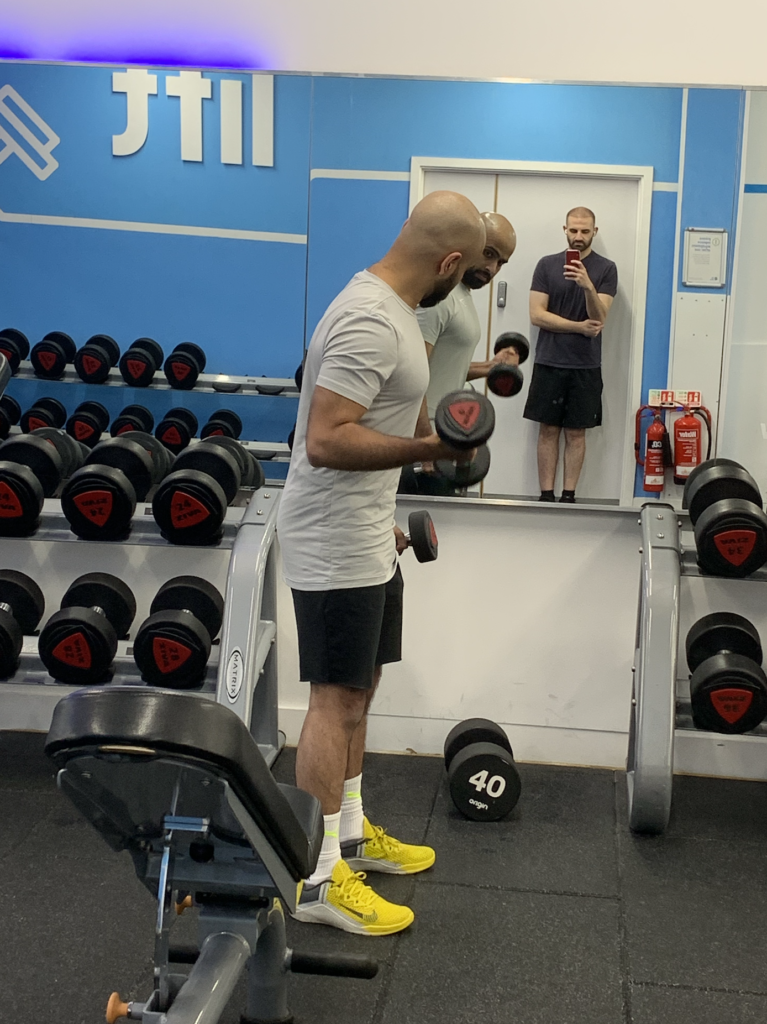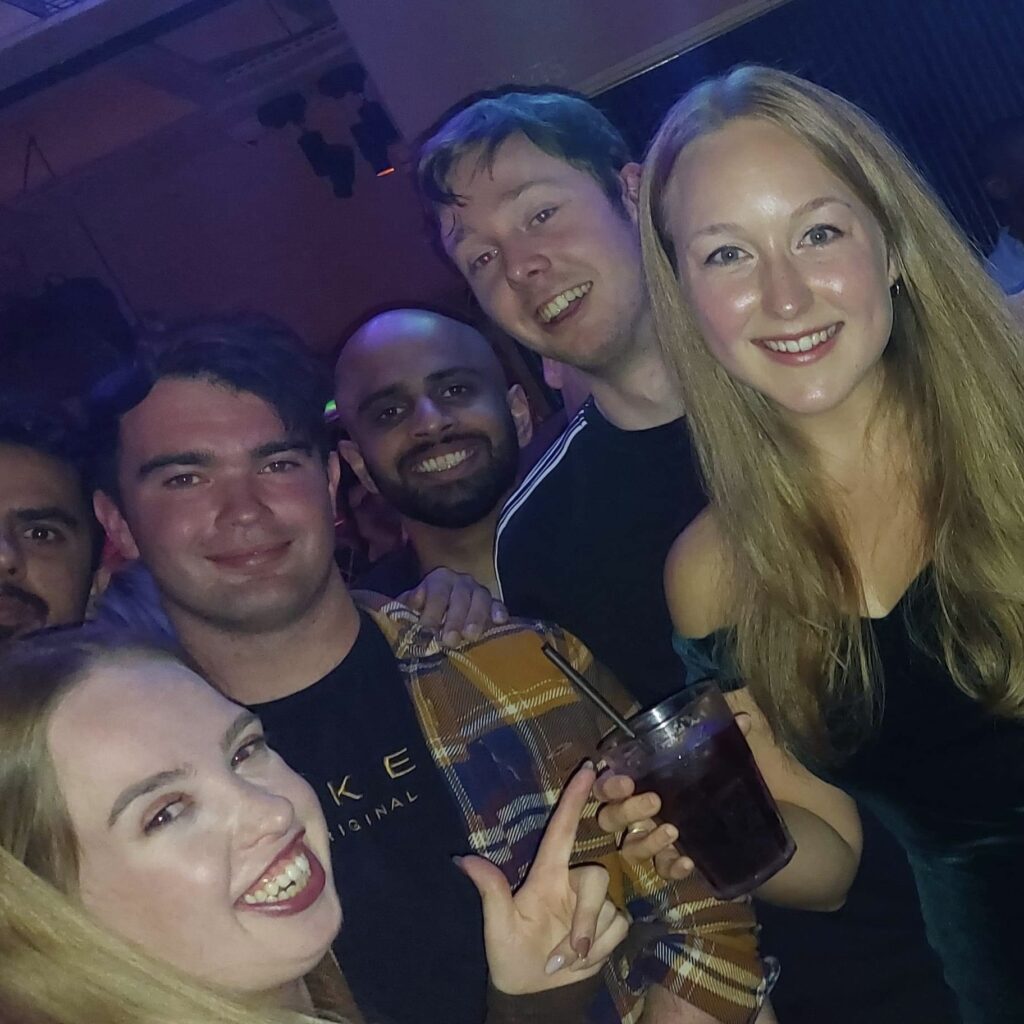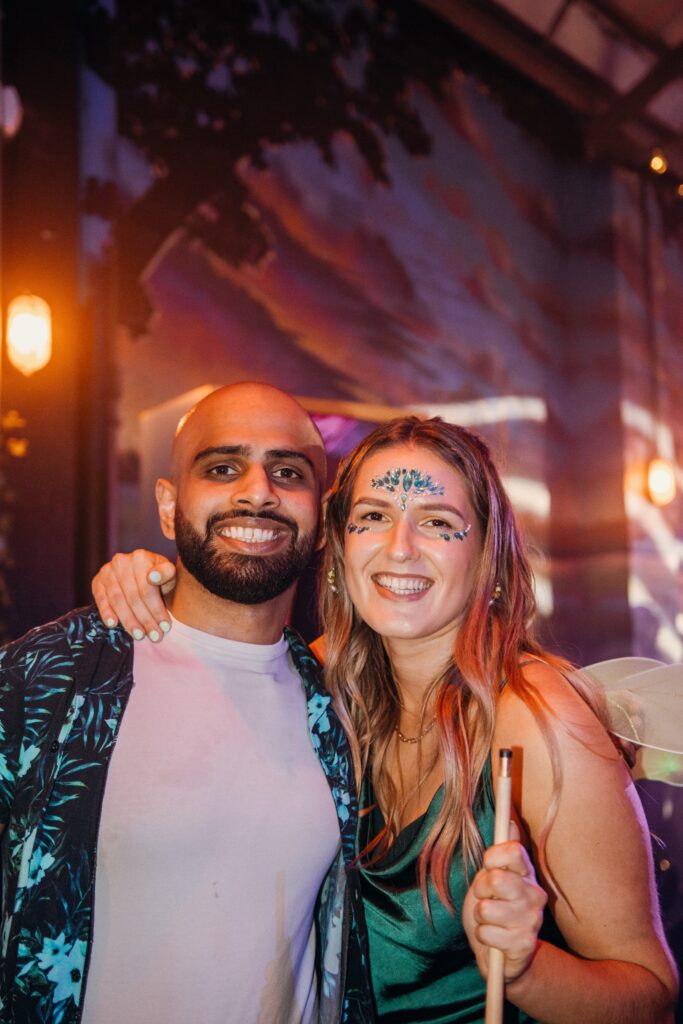Have you ever thought to yourself “it’s so damn hard to meet people as an adult!”?
Chances are, 95% of you reading this have struggled to form meaningful friendships as an adult.
The type of friendships that are called “true friends,” where all people in your circle have your back no matter what.
You feel like you missed your chance in your younger years.
But you’re not alone in this.
Whether you’ve graduated from university, or you left high school, the majority of your friendships you’ve formed have most likely faded away over time.
People move across the country, or even the globe. Circumstances change. It’s because of multiple reasons that you probably have no control over.
But this is a question many of us ask…
Schools teach us content like Pythagoras Theorem which pretty much goes flying out the window once you finish that GCSE Maths exam.
But how come schools never teach us about forming and maintaining friendships or relationships? It’s usually because it doesn’t help them improve their academic rankings in league tables.
Social skills are something you’ve never been taught and you’re somehow expected to know it. You’re stuck in a catch-22 situation. This is probably even more challenging if you’re neurodivergent (Autistic Spectrum, ADHD etc.)
And when you find yourself struggling to get this part of your life handled, you feel like you’re either missing out on all the fun the twenty-somethings have, or you feel left behind in life compared to your peers.
It’s a common fear many of us experience once we graduate from college / high school, heck I have experienced this fear too!
I studied Economics with a year in Computer Science at the University of Birmingham.
Through the Guild of Students organization at University, I was able to form a good group of friends (Being involved in the Kabaddi, Tamil, Hindu, Economics & MMA societies – all of this made it easy to meet other like-minded people).
After I completed my Economics course, I went on to study my year in Computer Science.
The course had an intensive workload with constant assignments every week and lots of exams to prepare for.
This meant that I barely had a social life in this time and I had way less free time than I did during my Economics years.
The only circle of friends I had that year were the people I studied with in my class.
Once all that finished, almost 95% of the people from my circle separated and I’m no longer in touch with them.
Everyone’s in different parts of the country, or the world. Some I’ve severed ties completely.
I didn’t think I could build a new circle from scratch in the real world, so I held onto the friendships I had from high school and university.
I was trying to avoid facing the unknowns and keep the college experiences going while I could.
I was dearly holding on to the remaining friendships I had (even if some of them weren’t good for me).
The more I spoke to people after college, the more it became evident how challenging it is to build a quality social circle as an adult.
It’s a common problem, but it’s can be potentially detrimental to your mental health and happiness if it’s not handled properly.
After all, it’s difficult to live a happy life with a mediocre or non-existent social life.
You’ve probably heard the saying “you’re the average of the 5 people you spend the most time with” by Jim Rohn.
If you did then you know how important it is to have a good social circle.
The more time I’ve spent with people who are levelling up their lives in big ways, the more I have levelled up.
The more time I spent with people who are into self-improvement, it gave me the drive and determination to improve myself too.
Their energy rubs off on you (Whether it’s positive or negative and believe me, you don’t want negative energy to rub off on you).
The friends you have in your circle can show you what’s possible and motivate you to get to new heights you wouldn’t have attempted to reach otherwise.
OR…
If they’re toxic people, they can bring you down to new lows and even ruin your life.
I’m grateful that I was able to build a thriving social circle that spans different countries across the world, with cool people I can connect with in just about any major city I travel to.
I was even able to connect with some people from Australia and New Zealand before I travelled there last year, and I ended up meeting them in person. It all started from online and some of the best connections I have in my network originated from social media.
You may have also seen in some of my Instagram content that the people I’ve collaborated with came from different parts of the world.
Now you might be wondering how did I form friendships with people from different parts of the world…
Don’t worry, I’m going to show you how I did this.
Before we dive into this, it’s important that you understand why most people don’t have the social lives they want.
The conventional ways of making friends just isn’t that effective. If you want to achieve great things in life, you’ve got to do things differently from the norm.
Will you get rejected? Yes, most definitely. I’ve been socially rejected countless times but it’s part of the process of getting your social life handled. When you finally form the social circle you want, all those rejections encountered will be worth it.
After all, you want your circle of friends to be people who are compatible with your personality and like you for who you are.
I will also add that luck and timing is also a factor in meeting the right people in your life. However, luck will only favour you if you show up and put the effort in consistently.
How do most people make friends before they’re 25? – It’s mostly from your neighbourhood, high school, college and your workplace.
In your childhood years, you typically hang out with the people from your school or your neighbourhood.
As you went through school, you start to form friendships with people in your class and in other year groups.
Then you go to college, the same process happens over there.
You form friendships from lectures, classes, dance, sports, societies you’re involved in. Including house parties, student unions and bars / clubs.
Then you graduate with a degree and you’re either working in an entry level job or you’re on a 2 year graduate scheme somewhere and you make new friends at your workplace.
Whether it’s an office or a placement, these friendships you make will come and go as soon as you switch jobs and paths in your years.
It’s natural, you become friendly with the people you see the most and are most familiar with, right?
All this is fine and while it is definitely possible to meet quality people from high school and college, there are a few problems with relying on “luck” to form friendships:
- Childhood and school friends usually don’t last very long, or they become distant as you grow and evolve over a period of time. The type of person you are in your twenties is very different to who you were when you were 10 or 15. I’m definitely not the same person I was in high school or university.
- College friendships often fade as people spread throughout the country, or the world.
- Work friendships often fade when one of you moves and gets a new job at a different firm. The common workplace was the glue of the friendship and this fades once one person leaves. The same workplace was the only thing keeping the friendship alive.
- The majority of these friendships require little to no effort or intention. Since you have mutual interests, the friendships are easy to develop.
So what happens then?
You end up with a bunch of friendships that you’re no longer close with.
Or if you were like me, you’ve kept some friendships with people who are negative influences on your life.
For example, Jeffrey from your class was a great friend at the time and you shared a lot of interests and hobbies with him.
But now that he’s 24, unemployed, drinks all the time, plays video games all the time and spends his free time trolling people on Reddit and social media.
He’s probably not someone you should hang around with if you ever hope to achieve a good quality social life.
What’s more scary is that you haven’t been taught by schools or anybody to be intentional about building your friendships from scratch (without relying on school, college, work or being in the same neighbourhood).
You have no idea where to start and you’re feeling lonely as time goes on.
As the friendships from your early years fade away, your social life takes a hit and your circle shrinks to the point where it’s non existent now.
You even sometimes ask yourself if you even have one person to call a “close friend” at all.
And this is the moment when you catch yourself thinking “it’s so hard to make new friends as an adult?” ~ you were relying on “luck” instead of being proactive and intentional about building your social circle.
It’s a very common, and critical problem!
But don’t worry, in this blog post I’m going to show you the steps that worked for me in getting my social life handled.
What Does A Thriving Social Life Look Like?
A thriving social circle is essential to a high quality life. In order to understand why that’s the case, we will compare what an average social life looks like against a thriving social life.
It’s very hard, if not impossible to achieve a high quality lifestyle with toxic people around you. However, it’s inevitable that you WILL certainly achieve a high quality lifestyle with good positive people around you.
Do note whether your values are aligned with your current friendships.
For example,
If you value honesty, then it wouldn’t make sense to keep spending time with dishonest people or people who are pathological liars.
If you value your health and fitness, then it wouldn’t make sense to keep spending time with people who don’t even exercise or keep eating Oreos and Cheetos every single night.
If you value traveling and seeing the world with your own eyes, it wouldn’t make sense to keep spending time with people who don’t even have a passport.
Yet most people stick with their social circle who have vastly different values from them.
And people wonder why they feel like their current friends are “bringing them down.”
But before you cut everyone in your whole friend group, realize that everyone has differences.
You don’t need to remove friends that have different hobbies or interests from you.
But you do need to remove friends who have toxic attitudes and perspectives in life.
There’s always that one person in the group who has a negative vibe most of the time. They focus on the negative aspects of life so much that it is draining to even be with them for an hour.
Take note of those people and either remove them, or spend much less time with them if you can’t remove them from your life.
This is why it’s important to meet like-minded people. The more similarities you have with your friend group, the easier it is to maintain your relationships with them, and the higher chances that the group will stick for the long term.
Remember, only a few people are intentional about building their lifestyle. The average person in the globe has an average or below average social circle. Let’s analyze how this looks and see if you can relate to this.
- Negative / Toxic friends that put you down or take advantage of you.
- Misaligned Values
- Complacent People
1. Negative / Toxic friends that put you down or take advantage of you.
Often I hear stories like
- “My friend told me [X reason why I can’t start a business / YouTube channel] (I.e. “my friend told me that my dreams are unrealistic and that I’d just be wasting my time and I’m better off just getting a job”)
- “My friend told me [X reason why I can’t talk to strangers / people you don’t know] (i.e. “My friend told me it’s ‘weird’ to approach people I don’t know and that i’d just be bothering them / creeping them out”)
- “My friend makes fun of me for taking [X type of action]. (I.e. “My friends make fun of me when I get rejected”).
If you’ve experienced any of the above, the question you’ve got to ask yourself is “Do my ‘friends’ get the results they want or are living the type of life you aspire to live”?
I can guarantee the answer is almost always “Well no, not really”. This is when I’ll tell you to be very careful who you listen to and get advice from.
If you listen to people who don’t get results, that’ll be your path too. But if you listen to people who take action and get results, you’re much more likely to get results too.
If you’re reading this blog post, I will go by the assumption that you are indeed trying to improve your social life and I congratulate you for taking the first step, it means you’re serious about learning different perspectives and doing the steps required to make changes.
Whenever you try to improve your life, there’ll be many people out there to tell you “You can’t do this / that”
I would tell you “They will ALWAYS say it can’t be done, but this is a reflection of THEIR limitations, insecurities and NOT the reality of your situation”.
I would even tell you to never hangout with people who make you feel bad about yourself or undermine you.
HOWEVER, if you have enough people in your life projecting their limitations and insecurities onto you, that negativity will rub off on you and it’s going to seep into your level of self-belief and confidence.
This is the danger of having toxic people in your life. They don’t encourage you to explore the possibilities.
They are quick to tell you your ‘limits’ and they only focus on what can go wrong instead of what can go right.
Before you know it, you’re settling for what those negative people think you’re capable of (which is usually not much).
I’m here to tell you that you are much more capable than you think you are.
2. Misaligned Values
Even if the values themselves aren’t negative, your values might not be aligned with the other person.
For example, if you’re focused on self-improvement and making the most out of life while the other person is focused on their favourite football team or drinking every weekend. You might still have a fun time hanging out, but it’s not a beneficial relationship. People who encourage you to take part in activities that are harmful for your wellbeing are negative influences and they will hold you back in life.
3. Complacent People
A lot of people have a complacent approach to life. They don’t try to shoot too high or dream too big, but are content to “settle” for less. Nothing wrong in that, as society needs these people to function. But there’s not going to be a shortage of these people, so there’s no reason why you have to be one or associate yourself with one either, and you only have one life and you’re capable of striving for a lot more in life.
The danger of complacency is that it can rub off on you. If your friends don’t care that much, then it’s unlikely you’re going to care that much either, and the less you’re going to try and level up. This is not where you want to be.
All of these types of relationships are usually formed in the places where many people form their friendships (workplace, school, college etc.) The problem is, because we haven’t been taught to intentionally build our social circle, you end up holding onto these relationships. I get it, nobody likes to be lonely and we all desire a social connection.
The good news is, that loneliness can end today.
Once you learn how to intentionally build good quality relationships, you won’t find a need to hold onto these negative friendships. In fact, there’ll be no reason to keep them going.
For the last few years, I’ve been grateful for having a high quality social circle, filled with ambitious and motivated people. My life changed dramatically when I was associated with a high quality friend group. They’ve shown me what is possible in life, pushed me to think big and never to limit myself, and connected me with other awesome people.
I had an idea of what I wanted in my circle, but meeting these people allowed me to expand my vision and accelerate my progress on this journey.
Let’s talk about what a thriving social life looks like. Be honest with yourself about your own current social circle. Does it have these qualities? Or does it look more like the average social life we just discussed?
Chances are you probably have some great people already in your life and some negative people. This will shed light on where improvements can be made.
- Aligned Values
- Quality Friends Who Support You
- People Who Are Where You Want to Be
- People You Can Lift Up
- People On Your Level
- People Who Inspire You
- Aligned Values
Being on the same wavelength as your friends is very important for a healthy friendship.
You may not need to have all of your values aligned. For example, it’s fine if you and the other person have different political and religious beliefs. It’s fine if you like Marvel movies but the other person does not like them. This doesn’t mean you need to “unfriend” them. You never want to “unfriend” people over petty reasons (more detrimental than beneficial to the quality of your social life).
But the important values have to be aligned. For example:
- Levelling up your career and your finances.
- Personal growth and self-development.
- You both enjoy going out and meeting new people.
- You’re aiming for or working towards lifestyle goals.
- You both have integrity.
- You both problem-solve or work around challenges rather than playing the victim.
- You both enjoy fitness and sports, eating healthy and taking care of yourself.
Some of these values could be non-negotiable for you, like having strong integrity, personal development and problem solving. In cases like these, you shouldn’t be friends with people who don’t have these values. With the others, there’s room for flexibility and you can afford to be more lenient with them. It’s okay if some of your friends are already in relationships or married, or if they don’t absolutely love Marvel movies or football. Not everyone needs to have exactly the same values.
This does mean you should assess what is important FOR YOU in a friendship.
Actionable Step: Write down your values, including your non-negotiable values.
When you associate with people who share similar values to you, you can grow together and support each other. You might even be able to work on some awesome projects together. I’ve collaborated with plenty of friends and people on creative projects like Short films, Music Videos, Cosplay Photography and Digital artwork.
Instead of having your friends leech off you. You end up hanging out with people who add value and push you to be better than you were yesterday. That makes the journey far more fun and enjoyable.
2. Quality friends who support you
If your friends have values aligned, they’re a lot more likely to be the people you want to keep.
Good friends encourage you to think bigger. Negative friends bring you down and say “you can’t do THAT”.
Good friends will never make fun of you for taking action and attempting to improve your life because they’re doing the same. You can remove the negative influence from past friends that caused you to doubt yourself. Instead you can replace those negative friends with positive influences from good people. This encourages you to have confidence and faith in yourself rather than second guess your abilities.
Instead of feeling jealous towards you, these friends will show you appreciation and gratitude when you do well. This creates a positive upward spiral where you’re all winning together.
The problem with negative friends is they see success as a “zero-sum” game (they think if you’re successful then they’re less likely to be successful which is not true).
This type of thinking causes them to see themselves in a negative light (they feel they’re not good enough). This is why you’ll sometimes see people try to undermine you when you’re doing well. They will try to sabotage you or distance themselves from you completely because they can’t handle the thought of their friend or someone they know doing better than them.
Good people understand that if their friends win, it’s good for them as well. Everyone is happy and all their lives improve. Everyone wins.
So if you are feeling jealous or envious towards someone’s perceived success, ask yourself honestly why you feel that way towards them. Instead be happy for their success and avoid comparing yourself to them. Remember, success is relative and we’re all on our own unique journey in life. You cannot compare apples with oranges.
Actionable Step: If you see someone post an accomplishment or an achievement on their social media and you start to feel jealousy, instead of feeling jealousy or envy and having the temptation to write a negative comment or “unfriend” them, be happy for them and congratulate them for their success.
3. People who are where you want to be
To achieve big, you need to think big and this can be a lot easier when you’re friends with people who encourage you to think big and are where you want to be.
For example,
- People who make more money than you
- People who have better social skills than you
- People who live amazing lifestyles
- People who are in healthy and happy relationships
- People who are further along in the journey of your career or business than you.
Aim to have friendships with all types of people, it can change everything for you. As it did for me.
I thought I was good at photography and film… until I met other content creators who were making much higher quality videos than I was.
I thought I had decent social skills… until I hung out with guys who had a big social circle and great social life.
I thought I was living a good life working from home…. until I met people who worked less hours than me, and lived a great lifestyle outside of work.
I thought I had good video content… until I met other guys who get thousands and millions of views and subscribers.
These types of connections have helped me to level up and aim for the stars instead of limiting myself to a ceiling. Those same people have also humbled me and allowed me to keep my ego in check and this is key for personal growth. Always aim to be in an environment where there’s someone out there who’s doing better than you, and that’s totally okay if they are, as this will help you to continue putting in the work to levelling up.
I’ll show you what I did later on in this blog to make these kinds of connections. But please note you must refrain from getting envious or jealous of these people. And definitely DO NOT try to sabotage anyone out of jealousy. Instead, be thankful that they’ve shown you new possibilities and motivate you to expand your goals and aim big.
4. People you can lift up
It’s absolutely fine to have friends who are not quite as far along the path as you, too. That being said, make sure your values are aligned. If they’re not that far into their journey but are trying to get there, that’s awesome! If they have no interest in improving their own lives or have a negative attitude, they’re probably not the kinds of people you should spend much time with.
The advantage here is you can provide lots of value to these friends on a similar journey to you. If you’ve been in their shoes and have the experience to help guide them along the way, it can be an enjoyable experience for the both of you. Likewise, they can also provide a ton of value for you too.
5. People on your same level
These types of friends you’ll be able to connect with the most. Perhaps you’re on a similar wavelength with money, lifestyle, social life, careers, or whatever it may well be.
The neat thing here is this can be an environment where you and your friends can have fun by having friendly competition with each other, holding each other accountable. But that being said, you need to see it as a win-win situation so that even if one of you does better than the other, you’re happy for their wins and they’re also happy for your wins too. Again, refrain from jealous of your friends success. They’ll be happy for you when you succeed, similarly you should also be happy for their wins when they accomplish them too.
6. People that motivate you
Good friends motivate you in many ways. They encourage you to think big, be better and reach for the next level with their actions and their advice. I’ve surrounded myself with like-minded people who have helped me get back into filmmaking and motivate me to strive for new heights with my video content.

For example, a great friendship I’ve had is with Ammar from the AS eSkater YouTube channel. We’ve helped each other with our video content in a lot of ways and even trained at the gym together, holding each other accountable for our fitness goals as well as our daily habits. We would often track our habits down in an app called ‘HabitShare’ and we ensure that we’re meeting our goals each month.
I would even go far as saying that Ammar is a big reason behind many of my successes these past few years. He’s motivated me to continue working hard on the video content, got me back into filmmaking and even writing this blog you’re reading. All of these forced me to get outside my comfort zone and in turn, helped me to achieve a good quality lifestyle.

When you have people in your circle who motivate you, it’s much easier for your journey.
By now, you’ve seen how important it is to be intentional about building a high quality social life after college.
If you have no idea where to meet people with the same interests as yours, here are some suggestions:
- Meetup.com and join groups and events within your interests.
- Try conversing with people at your gym, there’s a good chance you may bump into those same people again later on.
- Eventbrite.com has some really good events and I’ve met plenty of connections from this website alone.
- Networking events, conferences, performances, photography meetups and photo walks.
- Speed dating events, bumble friends, online apps
- Facebook groups of the things you’re interested in (Yes Theory, The Travel Squad, Language Exchange to name a few)
- Comic Con, Cosplay Groups, Film Festivals, Networking events etc.
- Message someone on your social media network and ask if they know a group within your interests (example: Weekend Football group, Hiking Group, Book Discussion Group)
- Join events you see online and on social media (Facebook, Instagram, Google). Whether free or paid.
- In your workplace, ask your co-workers if they know a fun thing to do and if they have a group that does that activity. Some workplaces often host socials for colleagues to attend. Try to join them!
- If you still have contact with your old classmates, reach out to them and see if you can hang out with other old classmates. Chances are some of them have larger or more groups so you can join those other groups too.


These are just some examples of things you can do to expand your social circle and what worked for me.
Always ask yourself “What types of people do I want to meet?” and ensure that you’re intentionally looking for events or places where you can come across the types of people you want to connect with. Remember, we’re trying to be intentional about our social circle and not rely on luck (although this can certainly play a role too).
One group that I’m part of is the Gaana Brunch (Tamil) group in London, UK. I was born into a Tamil family and I wanted to find events out there where I can meet other like-minded people who are also interested in Tamil culture. I’ve met some great people from these events and all of that was only possible from taking initiative in my search.

I found their page through Instagram search and also reaching out to the Tamil society from my university. All you need to do is to spend a few minutes browsing the internet for groups of your interest.
I’d even recommend creating a group chat (Messenger, WhatsApp, Instagram) with the people you have connected with, introduce others to each other and organise meet-ups and things to do in those group chats.
You have to remember this important concept: YOU have to be the one to approach people and make the first move. Put yourself in position to run into these people.
You can’t wait for other people to invite you. This won’t work especially if you’re a shy or introverted person who has a hard time connecting with people.
Take control of the steering wheel and be proactive in your journey.
Think of this as an opportunity to improve your social and leadership skills while building your new circle of friends at the same time.
You have to be the one to approach because a lot of the time, the people who have a mediocre social life are either not very active at approaching people, or they don’t even make the effort at all.
The biggest reason for a subpar social life is fear of rejection, embarrassment, awkwardness etc. Remember this. Rejection is temporary, regret is lifelong loneliness. In fact, looking stupid in front of others is the key to getting your social life handled in the long-term.
Yeah you’ll probably get rejected a lot on this journey. So what if you get rejected? Rejection in the social world just means incompatibility and other factors that are outside of your control.
Even if some people aren’t interested in what you have to offer, there will be plenty of other people out there in the world who will gladly accept your friendship. But it all starts with you approaching and making the first move.
You just have to go out there and find those people and this is a process that takes many months, years even. Have a lot of patience and persistence in this journey.
And also, don’t forget to follow up and ask people for their contact information. This seems like common sense, but I see many people forget to do this.
When they meet a person they like, they forgot to ask for their contact number or social media, and they never see that person they liked again. Which is unfortunately a missed opportunity.
Once you get their contact information (I would recommend BOTH WhatsApp & Instagram for this), follow up with them a few times. If they keep rejecting your invitations, then meet other people, get their contact information, and do the same process.
Rinse and repeat until you’re spending time with new people you met before, or you joined their groups, and you find that you like spending time with their groups.
Introduce your friends to other people. Connect others with each other. By doing this, you will be seen as the VALUE PROVIDER and this will work in your favour.
Let’s say, you introduced your friend to another friend of the opposite gender, they hit it off. All goes well and eventually, you hear the news that they will get married.
You know who they’ll thank? They’ll thank YOU for connecting them together and making it happen. Because none of that would have happened if you didn’t take the initiative to introduce them to each other.
I’m not saying you should set your friends up with another person if they’re looking to date someone, but what I am saying is introducing your friends to another group of friends can go a long way and lead to outcomes you least expect and generally for the better.
You have to remove ‘Some day’, ‘One day’ from your vocabulary if you’re serious about getting your social life handled because that ‘Some day’ will NEVER come if you’re not proactive.
You have to be proactive, put yourself out there consistently and be okay with social rejection.
So now you have good ideas to build your thriving social circle.
Building a social circle is one thing. But how do you make sure you solidify and expand that social circle?
If you adopt these strategies, you’ll almost certainly see some progress in your social life and this is how I was able to build a worldwide network of connections where I’m introduced to new quality people. I always introduce my friends to new people and they do the same for me and it only keeps expanding from there.
But let’s be real: If you’re not going anywhere in life, quality people won’t want to spend time with you.
Especially if you:
- Play the victim instead of finding solutions to the problems.
- Rely on excuses to rationalise any lack of success.
- Getting jealous of other people’ success.
- Complaining constantly.
- Wasting time
- Lack self-reliance and reliability.
High quality people don’t associate with people who tear them down and definitely not for long. They don’t want to engage in any drama or negativity.
They aim to create a positive upward spiral towards success, rather than a downward spiral into negativity.

Getting a social circle is one thing, but maintaining it is another and only then, will it be sustainable to grow your social circle in the long-term. But if you’re reading this blog post, this tells me you’re trying to improve your social life for yourself and that’s awesome. However, you need to take action and translate that into reality to see change in your life.
But when you’re doing the following:
- Improving your financial life
- Improving your social life
- Practicing healthy habits
- Building a good quality lifestyle
You will almost certainly become magnetic to other people. People will naturally gravitate towards you and you’ll be a positive influence on those you hang out with. This will definitely make it a lot easier to build your social circle, and you’ll always find yourself meeting new connections. The friendships you do make intentionally will be much more likely to stick instead of fade away over time. You won’t become close with everybody you meet, but that’s okay. You just need a few people in your circle to live a happy social life.
Here’s an ACTIONABLE STEP you can take right now:
- List down 5 hobbies and interests you like.
- Choose one hobby. (Can be either travel, learning a new language, photography etc.)
- Search online for a group that’s doing that hobby every week or month.
- If you find one that is in or near your city, and fits your schedule, join their group for one time if they allow strangers to join their group.
- If you like the group, join them a few more times, if not find another group.
- You can also try another hobby and find a nearby group in that hobby.
- Repeat this process until you have a regular group you’re spending time with.
Here’s a Checklist to see if the group you found is worth your time and effort.
✅ Majority of the people in the group are kind and approachable
✅ The group welcomes strangers regularly and are accommodating towards new members
✅ The group is consistent with meeting up
✅ Majority of the group is respectful towards each other
✅ Majority of the people in the group have their life together (Meaning no toxic attitudes, have stable careers/businesses/income, no vices, and no criminal records)
When you find this type of group, never let them go, you have found your people already!
Once you have completed the actionable step. Let me know in the comments below.
Questions to ask yourself:
- Will you take control of your social life? Or will you make excuses and settle with mediocre friendships?
- Will you meet new people as an adult? Or will you say “meeting new friends as an adult is impossible!” and stop trying?
- Will you use this as an opportunity to find your people and work on your social skills? Or will you accept that fact that you’re going to be “forever alone?”
Here are a few different book recommendations that have helped me on this journey.
- The Magic Of Thinking Big by David Schwartz
- What Every BODY Is Saying by Joe Navarro
- How to Win Friends & Influence people by Dale Carnegie
- The Compound Effect by Darren Hardy
- The Defining Decade by Meg Jay
- The Social Skills Guidebook by Chris Macleod
- Who Moved My Cheese? By Spencer Johnson
- The Lifestyle Blueprint by Dave Perrotta (Mainly targeted towards a male audience but has really good advice and strategies for getting your social circle handled)
- Conversationally Speaking by Alan Garner
If reading books isn’t your thing or you struggle to find time for books, I’ll recommend some YouTube channels that have helped me improve my social life:
- Charisma On Command
- Social Confidence Mastery by Myke Macapinlac (This is really good especially if you’re introverted, logical and analytical minded)
Now you have a rough plan on how to improve your social life and meet good people. It definitely takes work in your 20’s and beyond but I promise you it’s all worth the effort when you do manage to build and maintain a thriving social life.
I hope this post has helped you in any way shape or form. If there’s anything in this article which you need me to elaborate on, let me know!
May the best be with you.
Written by Baz Kannan. Edited by Kevin Pinili.




